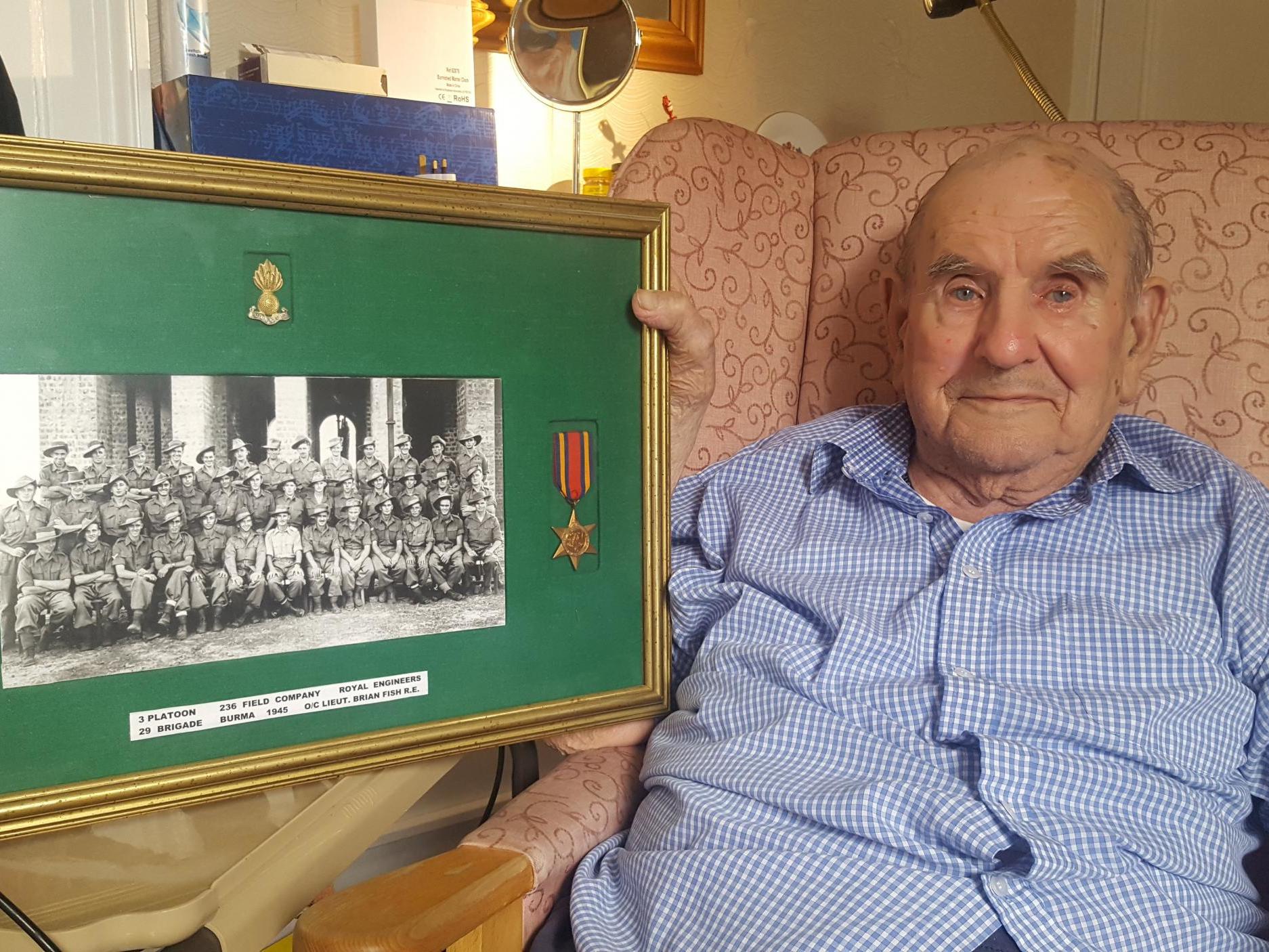War veteran, 99, left 'crying out in pain' on A&E trolley for 10 hours
Former Royal Engineer's ordeal comes as NHS emergency department queues longest on record

A 99-war-old war veteran was left in agony on an A&E trolley in a hospital for almost 10 hours.
Brian Fish, a former captain in the Royal Engineers, was left “crying out in pain” as he endured the long wait at Margate’s Queen Elizabeth Queen Mother Hospital, his daughter said.
Hospital bosses have now apologised to Mr Fish, from Canterbury, who is thought to be one of the last surviving soldiers who took part in the British forces’ Burma campaign during the Second World War.
Details of his ordeal emerged as figures showed the queues at NHS emergency departments are now the longest on record, with one in four patients at major A&Es waiting longer than four hours to be seen or treated in October.
Mr Fish, a great-grandfather, had been urgently admitted to hospital with gall bladder problems.
He was given pain relief but forced to wait in the emergency department, which was buckling under the strain of patient numbers.
His daughter Hilary Casement, who witnessed her father’s hospital ordeal, described the experience as “traumatic”.
She added: “How sad that having fought for the freedom of this country as a captain in the Royal Engineers, he has been forced to experience an overcrowded and underfunded system in his twilight years.
“I have no doubt that Boris Johnson would be horrified if his own father required emergency hospital treatment.”
She said: “It was traumatic for him. He lay for hours crying out in pain on a hard trolley.
“Eventually, with much pleading from me, he was transferred, actually tipped, on to a slightly more comfortable hospital bed and eventually seen by the kind, but overworked, medical team.
“It is upsetting for anyone to be forced to wait 10 hours or more, but for a vulnerable older person who cannot easily ask for assistance, it is especially traumatic.”
Mr Fish, who lives at Old Rectory Care home in Harbledown, lost many friends from his platoon in Burma as they fought the Japanese in sweltering conditions.
He previously said of the campaign: “I was just lucky not to be one of them.”
Ms Casement said she did expect her dad to receive preferential treatment because of his army service, for which he was awarded the Burma Star.
But she added: “I hope the hospitals trust can give the residents of Canterbury and east Kent some reassurance that appropriate measures are being taken to avoid lengthy and stressful waits in A&E during a notoriously busy time of year.”
In October, 3,804 patients endured waits of more than four hours at A&E departments in east Kent – 199 more than in the same month last year. Across the county, hospitals trusts failed to admit an extra 2,846 people in time over the same period.

Only 83.6 per cent of patients were treated or admitted in four hours across all emergency departments in England last month. The national target of 95 per cent has not been achieved since July 2015, and doctors this week warned queues would “almost certainly” get worse.
A spokesman for East Kent Hospitals said: “We are very sorry that Mr Fish waited longer than we would want in our emergency department. We apologise to Mr Fish and his family for the distress this caused.
“Eight in ten people who attend our emergency departments and minor injuries units are treated, admitted or discharged within four hours.
“But our emergency departments can get extremely busy, which can mean that some patients wait longer than we want them to.
“When people are waiting for treatment, staff regularly monitor their safety and comfort, and work hard to control any pain and meet their care needs.”
Join our commenting forum
Join thought-provoking conversations, follow other Independent readers and see their replies
Comments
Bookmark popover
Removed from bookmarks